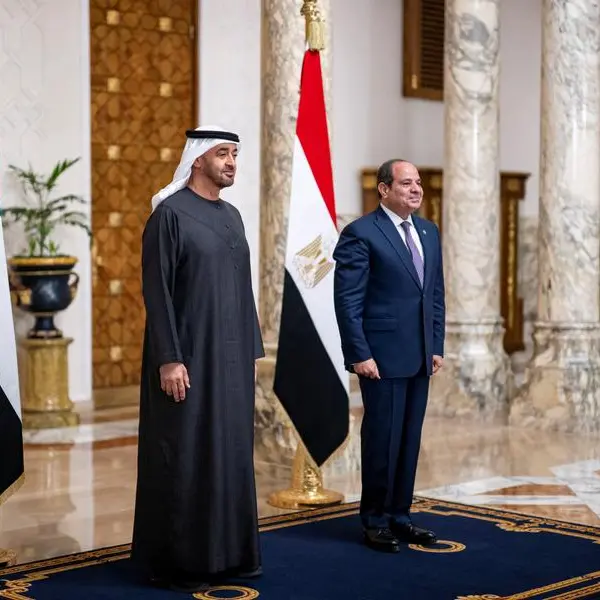PHOTO
Egypt - The Monetary Policy Committee (MPC) of the Central Bank of Egypt (CBE) is expected to hold its penultimate meeting of the year on Thursday to decide on key interest rates, which are critical indicators of the Egyptian pound’s short-term trends.
This meeting comes amid a consensus among investment banks and analysts that the MPC will likely maintain interest rates for the fifth consecutive time. This expectation is driven by persistent upward risks to inflation, fueled by ongoing geopolitical tensions and uncertainties surrounding Egypt’s negotiations with the International Monetary Fund (IMF) regarding the economic reform program.
In its previous meeting on 17 October, the MPC kept the overnight deposit rate at 27.25%, the lending rate at 28.25%, and the main operation rate and discount rate at 27.75% for the fourth consecutive time.
Earlier this year, the committee raised interest rates by 600 basis points in March 2024, marking a cumulative increase of 1,900 basis points since the start of its monetary tightening policy. This included hikes of 300 basis points in 2022, 800 in 2023, and another 800 in 2024.
The CBE recently reported a decline in the annual core inflation rate to 24.4% in October 2024, down from 25% in September. Meanwhile, the monthly core consumer price index (CPI) inflation rate stood at 1.3% in October 2024, compared to 1.8% in October 2023 and 1% in September 2024. Similarly, Egypt’s Central Agency for Public Mobilization and Statistics (CAPMAS) recorded a slight increase in annual urban inflation, rising to 26.5% in October 2024 from 26.4% in September. Nationally, inflation reached 26.3% in October, compared to 26% in September and 38.5% in October 2023.
The CBE has previously emphasized that upward risks to inflation persist due to global commodity price volatility, particularly energy prices, which are influenced by geopolitical tensions and unfavourable weather conditions. Locally, inflation is expected to stabilize at current levels through the fourth quarter of this year, although risks remain, including continued regional instability, rising global commodity prices, and the potential impact of fiscal consolidation measures exceeding expectations.
The bank projects that inflation rates will begin to decline in the first quarter of 2025 as the cumulative effects of monetary tightening and favourable base effects take hold. It reiterated its data-driven approach to determining the degree and duration of monetary tightening based on inflation projections, monthly trends, and the effectiveness of monetary transmission mechanisms.
Financial research at HC Securities & Investment also anticipates the MPC will hold interest rates in its upcoming meeting, citing Egypt’s macroeconomic developments and geopolitical tensions. Hiba Mounir, a macroeconomic analyst at HC, highlighted improvements in Egypt’s external position, including a $205m increase in net foreign reserves in October, reaching $46.94bn. Additionally, the net foreign assets of Egypt’s banking sector showed a monthly improvement of 6.0% in September 2024, with net foreign assets rising to $10.3bn compared to a $26.8bn net liability in September 2023. Furthermore, Egypt’s one-year credit default swap (CDS) rates dropped to 349 basis points, down from 857 at the start of the year.
On the economic activity front, Egypt’s Purchasing Managers’ Index (PMI) slightly improved to 49.0 in October from 48.8 in September but remained below the 50.0 threshold, indicating continued contraction in the non-oil private sector. Sub-components of the PMI presented mixed signals, with production and new orders contributing to the index’s underperformance.
Despite the inflation rate easing to 26.5% in October, lower than HC’s projection of 28.5%, Mounir expects inflationary pressures to persist, particularly as November reflects the full impact of mid-October energy price hikes. She also noted that Egypt’s interest rate differentials remain attractive, particularly given the absence of significant depreciation expectations for the Egyptian pound through 2025.
“We estimate a positive real interest rate of 2.9% on the average yield of 12-month Egyptian treasury bills, which currently stands at 26.241%. This calculation accounts for a 15% tax deduction for European and American investors and is based on our inflation forecast of an average of 19.4% over the next 12 months,” said Mounir.
She added, “Given the ongoing inflationary pressures and Egypt’s external debt repayment obligations in November—estimated at approximately $4 billion based on circulating reports, alongside $1bn owed to foreign oil companies—we expect the Central Bank of Egypt to keep interest rates unchanged in its upcoming meeting.”
Renowned banking expert Mohamed Abdel Aal emphasized that the upcoming MPC meeting occurs under conditions similar to those of previous rate-holding decisions. He identified six critical factors supporting another interest rate freeze, including the continued rise in domestic liquidity, which has grown from EGP 8.9trn in December 2023 to EGP 11.1trn in September 2024. This increase has prompted the CBE to intensify its weekly main operations mechanism alongside the mechanism of raising interest rates, to exert additional pressure to combat inflation and reduce excess liquidity in banks, signalling a clear intention to continue implementing an extremely tight monetary policy during the current phase.
The geopolitical and geoeconomic risks, both new and recurring, continue to intensify in the Middle East, placing the region at the heart of the conflict. If these tensions expand or escalate—God forbid—they are certain to disrupt supply chains and drive up prices. This raises concerns about the potential emergence of compounded inflationary pressures, necessitating caution. Additionally, the International Monetary Fund (IMF) continues to press for adherence to restrictive monetary and fiscal policies to combat inflation. Egypt is currently undergoing its fourth review round, expected to result in the disbursement of $1.3bn.
Abdel Aal also noted the continued rise in the annual inflation rate for urban areas, as reported by the Central Agency for Public Mobilization and Statistics (CAPMAS) over the past three months, although the increases have been marginal. For example, annual inflation rose slightly from 26.4% in September to 26.5% in October. On the other hand, there is the factor of the state’s fiscal consolidation and subsidy rationalization plans, which could generate new inflationary waves as the effects of higher fuel and energy prices take hold. It is worth noting that current inflation rates remain significantly distant from the set target of ‘7%, plus or minus 2%’ by year-end.
He continued, explaining that assuming the interest rates for the Egyptian pound remain fixed at their current levels, coupled with the gradual decline in U.S. dollar interest rates, this could enhance the appeal of the Egyptian pound to foreign investors in both direct and portfolio investments. It would also improve Egypt’s competitive position in financial and money markets compared to other emerging economies and encourage increased remittances from Egyptian expatriates. This effect is further bolstered by the Central Bank of Egypt’s launch of the InstaPay application, which enables instant transfers from abroad to local bank accounts or digital wallets.
According to Abdel Aal, in light of these considerations and the prevailing global and domestic economic conditions, the likely direction remains clear. Despite the global trend, particularly in Europe and the U.S., toward gradually easing restrictive monetary policies and reducing interest rates, it is anticipated that Egypt’s Monetary Policy Committee will opt to maintain interest rates at their current levels for another cycle.
© 2024 Daily News Egypt. Provided by SyndiGate Media Inc. (Syndigate.info).





















